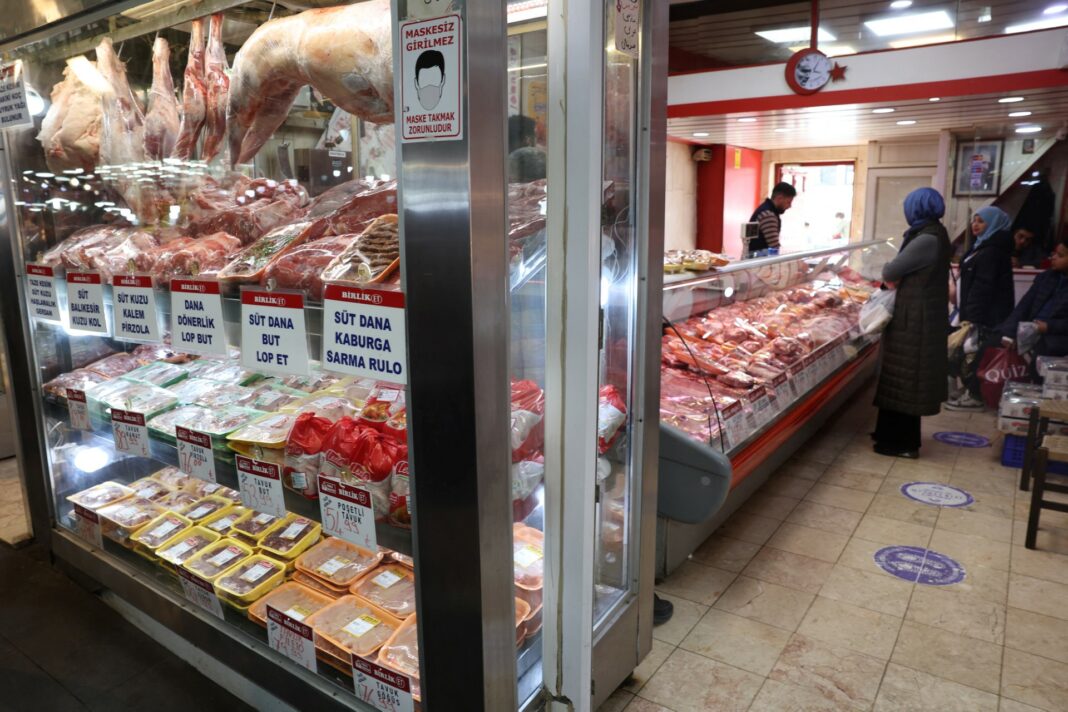Recent data show that four out of 10 Turks cannot afford to have meat, chicken or fish even once every two days, the Sözcü daily reported on Monday.
This situation is in stark contrast to eating habits in European Union member states, where 91.7 percent of the population can afford to eat such meals with the same frequency.
According to data from the Turkish Statistical Institute (TurkStat), taken from Eurostat, the official statistical office of the EU, Turkey ranks last in Europe when it comes to healthy eating.
The proportion of people in the 27-member EU who find it difficult to have meat, chicken or fish once every two days was just 8.3 percent in 2022. In Turkey, on the other hand, the figure is alarmingly higher: 41.5 percent of the population cannot afford a meal with these proteins once every two days — more than five times the EU average.
Compared to other European countries, the situation in Turkey is the worst. Romania and Bulgaria have the highest rates of people who cannot afford meat, chicken or fish every other day in Europe, at 22.1 percent and 21.6 percent, respectively. Countries such as Ireland and Cyprus have the lowest rates, at 1.4 percent and 1.5 percent, respectively.
The latest TurkStat data for 2023 confirm the difficult economic situation that many Turkish citizens find themselves in. According to TurkStat, 39.2 percent of Turks stated that they cannot afford to eat meat, chicken or fish every other day. The statistics also reveal other economic challenges, including the inability of 58.8 percent of households to afford a week-long vacation away from home, 31.8 percent to meet unexpected expenses, 19.5 percent to adequately heat their homes and 64.2 percent to replace worn-out furniture.
The inflation rate in Turkey, which rose to 67.1 percent in February despite a series of interest rate hikes by the Turkish Central Bank, which has kept the key interest rate at 45 percent, is making the economic situation even more difficult. Monthly inflation slowed to an increase of 4.5 percent in February compared to 6.7 percent in January. However, the Inflation Research Group (ENAG), a group of independent economists, disputes these figures and estimates annual inflation at almost 122 percent and monthly inflation at 4.32 percent in February.
The research center of the Confederation of Progressive Trade Unions (DİSK-AR), reported that food inflation is exceeding official inflation rates, affecting the country’s poorest people in particular. The food inflation rate for the lowest 20 percent income group reached 111.7 percent, demonstrating the disproportionate impact of economic challenges on different population groups.
Inflation remains a pressing issue ahead of local elections in March, when President Recep Tayyip Erdoğan’s ruling Justice and Development Party (AKP) aims to retake control of İstanbul, the country’s biggest city, and the capital Ankara from the opposition. Erdoğan has promised that the effects of the anti-inflation policy will be felt towards the end of the year.
Over the past several years the country has been suffering from a deteriorating economy, with high inflation and unemployment, as well as a poor human rights record. President Erdoğan is criticized for mishandling the economy, emptying the state’s coffers and establishing one-man rule in the country where dissent is suppressed and opponents are jailed on politically motivated charges.
